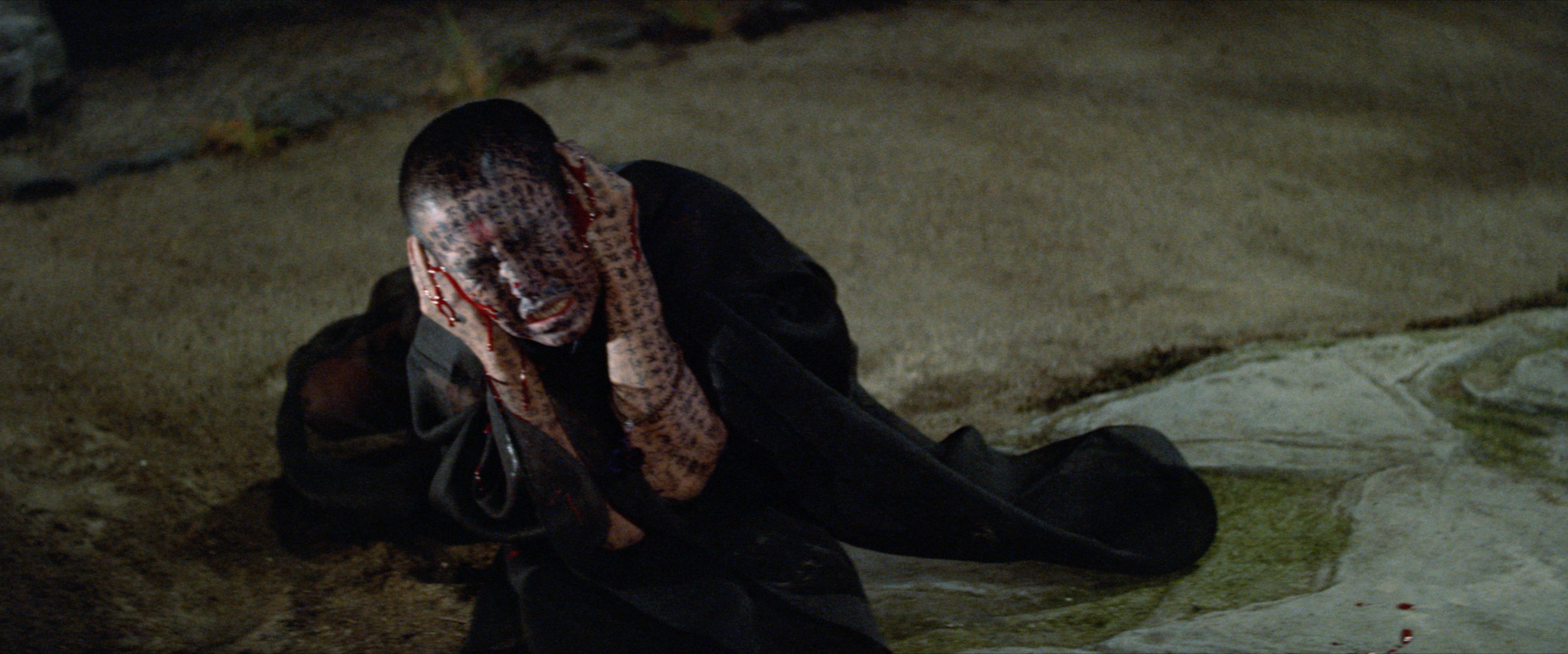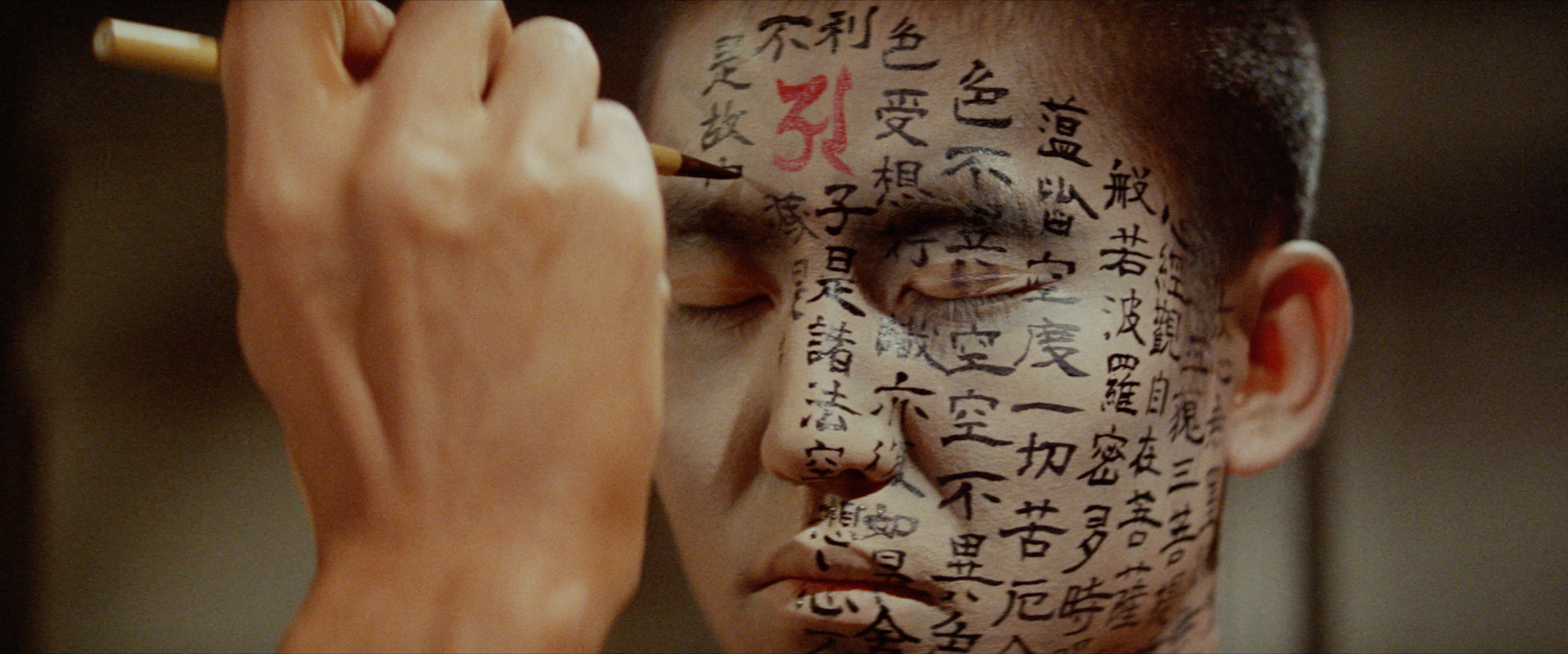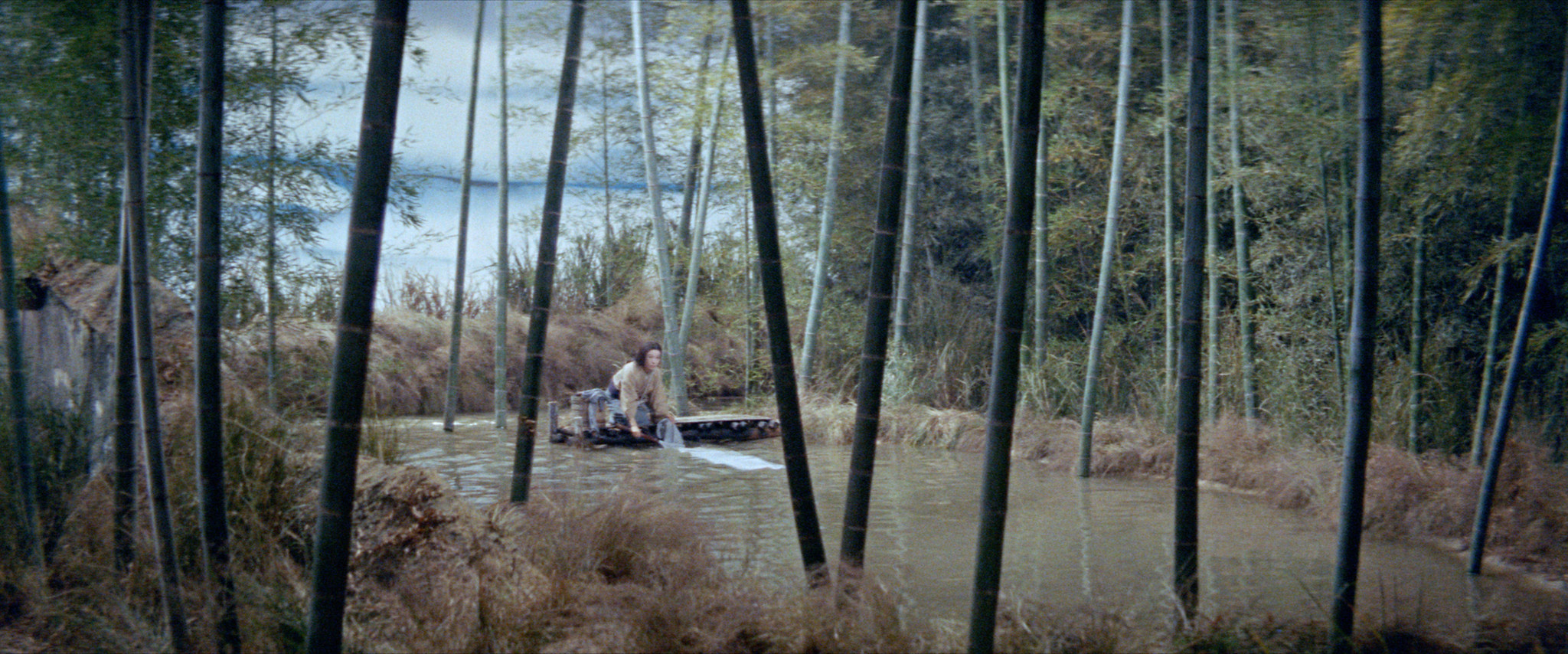Ghost stories don’t always have to be scary.
Kwaidan is a 1965 anthology horror film that deals with four very different ghost stories, alternating between spirits that are vengeful, heartbroken or just lost. Based on Lafcadio Hearne’s compilation of traditional Japanese stories, it’s a beautifully shot film that is by turns sorrowful, haunting and macabre.
The first of the stories is the scariest, and you can clearly see the roots of modern J Horror here. The Black Hair follows a selfish samurai who abandons his poor wife to chase after a beautiful, wealthy woman. When this new life proves to be not as idyllic as he had hoped, he tries to return to his previous, happier life but finds you can’t always get everything you want. This is the creepiest story by quite a way, and it’s all due to the final sequence. The set design and the disjointed sound design all contribute to a disquieting feeling that is truly the stuff of nightmares.
Previously cut out of some releases of the film, the next tale is a very different kind of ghost story. The Woman Of The Snow is light on scares, but is heavy on atmosphere, with some beautifully surreal sets (take a look at the eyeballs in the sky!) and a melancholy story at it’s centre. A woodcutter nearly freezes to death but is spared by an Ice Spirit, on the condition he never tells anyone how he survived. Tatsuya Nakada gives the best performance of the film as the woodcutter, and you really feel for him at the story’s end. There is a genuine feeling of sorrow to this story, and it stays with you long after the film has ended.
Hoichi The Earless is the longest and most ambitious story, and feels appropriately epic in scale. This is also where the films most enduring and haunting image comes from – the infamous shot of a blind musician covered in Japanese characters, clutching his ears in agony. The eponymous musician is taken from his home at a buddhist temple to play his signature tune for a ghostly audience. This story has some truly stunning visuals in it, not least the extended battle sequence at the start, and the ethereal court, silently listening to his performance is wonderfully eerie. However this is the one section of the film that feels very definitely aimed at Japanese audiences, who would be aware of the history behind the real life battle – some of the cultural elements don’t quite land with western audiences, though it’s undeniably an uncanny story beautifully told.
In A Cup Of Tea is the most conventional horror story by western standards, and as such is the least satisfying overall. A writer encounters a ghostly face in a cup of tea, and is haunted, first by the apparition, then by his ethereal accomplices. It’s a shame this is the last story in the film because aside from the haunting final image it’s not particularly memorable and a little generic.
Masaki Kobayashi’s direction is measured and unobtrusive throughout. It’s never showy but he manages to give each story a feel and a look entirely of it’s own. This is helped immeasurably by the beautiful set design, and the phenomenal cinematography. It’s almost a cliche to point this out nowadays but every frame is utterly beautiful, made even more impressive with this stunning 2k release, that makes it look like it was released yesterday, rather than over 50 years ago. The composition is brilliantly done, and this is especially clear in Hoichi The Earless, where the scenes of Hoichi playing his Biwa Hoshi are contrasted with the still, unsmiling court of the ghost emperor, who then fade away, revealing that he is actually in a graveyard.
The sound design is also incredibly effective and ahead of it’s time. In The Black Hair, all the sound drops out as the samurai is pursued by the hair, and comes back in again, but slightly out of sync, causing a disorienting feeling, accompanied by an eerie creaking noise that really gets under your skin. It’s a great effect and genuinely unnerving.
Beautifully shot, directed and acted, Kwaidan is wonderfully atmospheric treat for the senses and a ghoulish delight. It might not provide much in the way of scares, but the execution is faultless, and there is a lot of variety in the Japanese folklore included, and the film stays with you in a way unlike most modern horror. A unique and quite brilliant film.
Special Features
As usual, Eureka deliver the goods and then some with this comprehensive release of Kwaidan, with special features including:
- Hardbound Slipcase
- 1080p presentation on Blu-ray from Criterion’s 2K digital restoration of Kobayashi’s original director’s cut
- Original monaural Japanese soundtrack
- Optional English subtitles
- Kim Newman on “Kwaidan” – a new interview with the film critic and writer
- Shadowings [35 mins] – a new video essay by David Cairns and Fiona Watson
- Original trailers
- PLUS 100-PAGE Perfect Bound Illustrated Collector’s book featuring reprints of Lafcadio Hearn’s original ghost stories; a survey of the life and career of Masaki Kobayashi by Linda Hoaglund; and a wide ranging interview with the film maker – the last he’d ever give.







